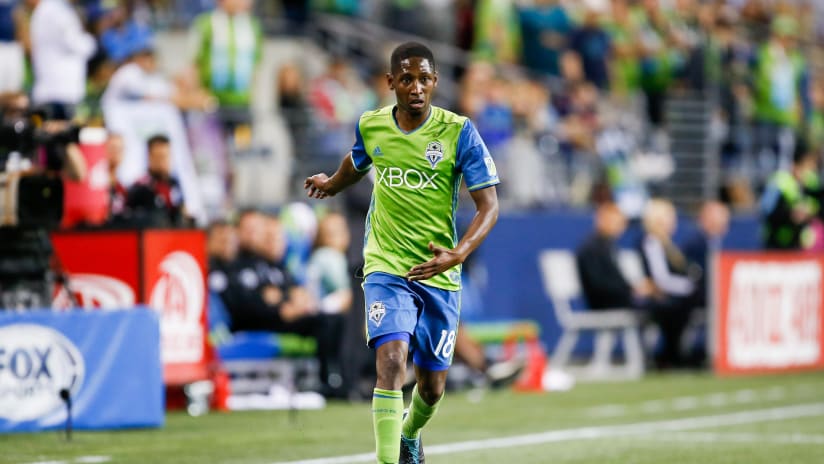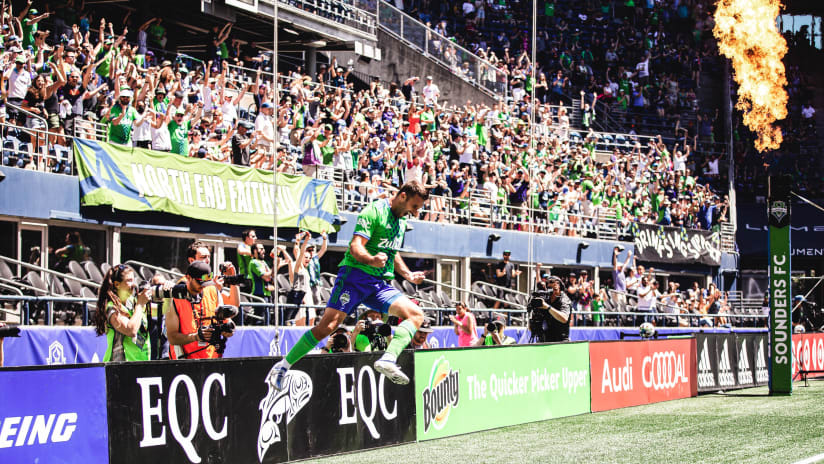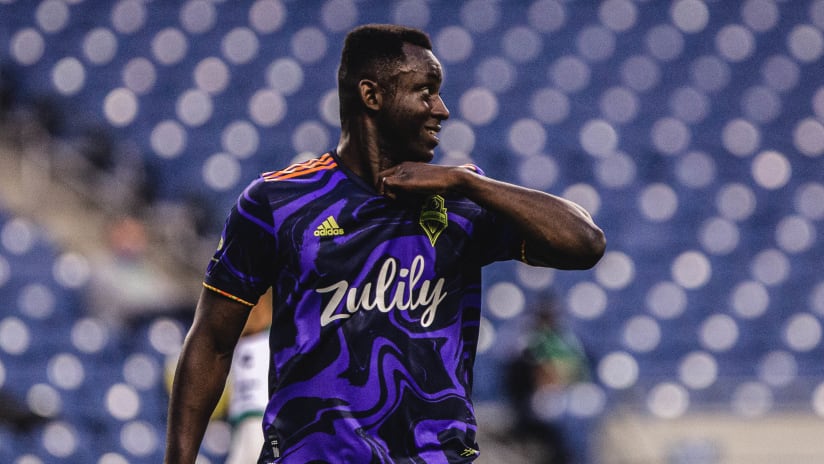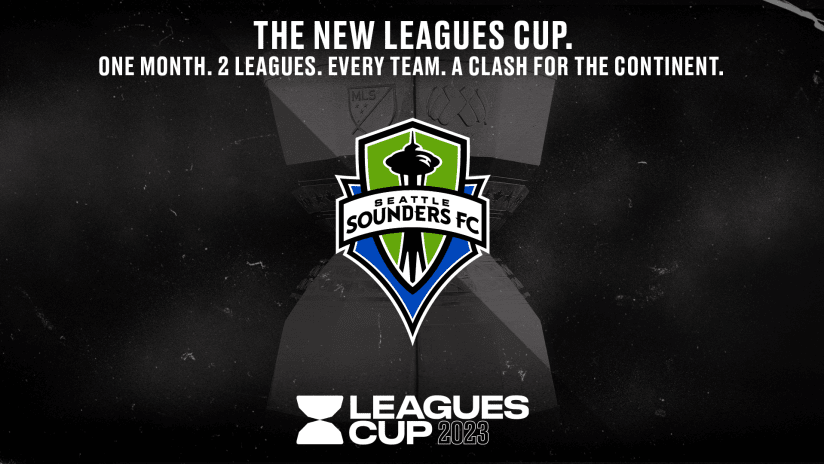NOTE: This is a feature in September’s edition of Sounders Monthly. It will be available free-of-charge at The NINETY, GuestLink Services locations, Soccer Celebration and Membership Central. You can also access it on the Sounders Mobile App.
By his own admission, Kelvin Leerdam has lived a fortunate life. Playing in some of the biggest games European football has to offer adds to that perspective, as does helping to anchor a surging Sounders backline as the Rave Green approach the business end of their current MLS campaign. But as Sounders Monthly sits down with the Dutch fullback for his first matchday magazine feature, the conversation begins with a rivalry he knows too well. Grinning from within the confines of Seattle’s Starfire Sports training facility, Leerdam recounts his time playing within Holland’s fiercest and oldest football feud: Feyenoord versus Ajax.
“It’s the two biggest teams in the Netherlands, and everybody knows it,” says the 27-year-old right back. “Feyenoord was the first to win the European Cup, and after that of course Ajax had a lot of European success. They have the biggest fanbases, and there’s fire there. Many times they are not allowed to have away supporters, and it’s based on the history of both teams. I’m very lucky to have played in these games, not a lot of young Dutch guys have a chance to play in these matches.”
It was within the crucible of these types of Dutch topflight contests that a young Leerdam honed his craft. Often overlooked by casual soccer observers who have their heads turned by the extreme amounts of money being bandied about in England’s Premier League or the top-heavy elite class of Spain’s La Liga, the Eredivisie – the formal name of the Netherlands’ top domestic soccer league – has quietly produced some of the best clubs and players the world has ever seen. At the top of that list are the two teams that compete in De Klassieker (Dutch for “the Classic”), with Amsterdam’s Ajax and Rotterdam-based Feyenoord doing battle for Netherlands supremacy since 1921.
A fixture that pits the two largest cities in the Netherlands against one another, the rivalry is also viewed as a cultural clash. Ajax plays the role of the urban elite within the fixture, representing the nation’s largest economy and Amsterdam’s artistic sensibilities. Rotterdam-based Feyenoord has more working class roots, embodying the hardworking spirit of Europe’s largest port city that had to entirely rebuild and reinvent itself following the Blitz in 1940. The stakes for the two sets of fans are real, as are the implications for European qualification each season.
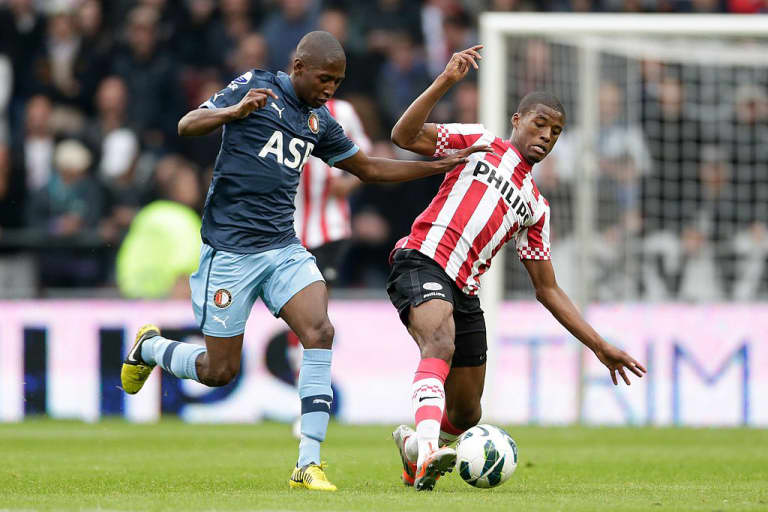
This was the backdrop for a young Leerdam, who featured for Feyenoord as both a youth player and for the senior squad from 2008 through ’13, making more than 100 appearances for the Rotterdam side across all competitions. During Nicolás Lodeiro’s stay with Ajax between 2010 and ’12, Sounders FC was represented on both sides of the rivalry, with Leerdam quick to point out a fond memory with a chuckle against his Seattle teammate.
“There were always quality players, and I remember Nico,” Leerdam recalls. “I know I beat him at home, and we won that game 4-0 or 4-1 in our stadium, and Ajax was eventually [Eredivisie] champion. It’s a very big game.”
Leerdam continues, “It means a lot to me and to Dutch football to have such big teams, it’s a special feeling and I’m lucky to have felt that atmosphere.”
Now on a different continent and plying his trade for a new club, Leerdam experienced his first taste of both legs of the Cascadia Cup with Seattle during the end of August, as Sounders FC faced Vancouver and Portland within five days of each other to conclude the month. While both matches produced 1-1 draws, Leerdam once again found himself on the biggest stage of his respective league.
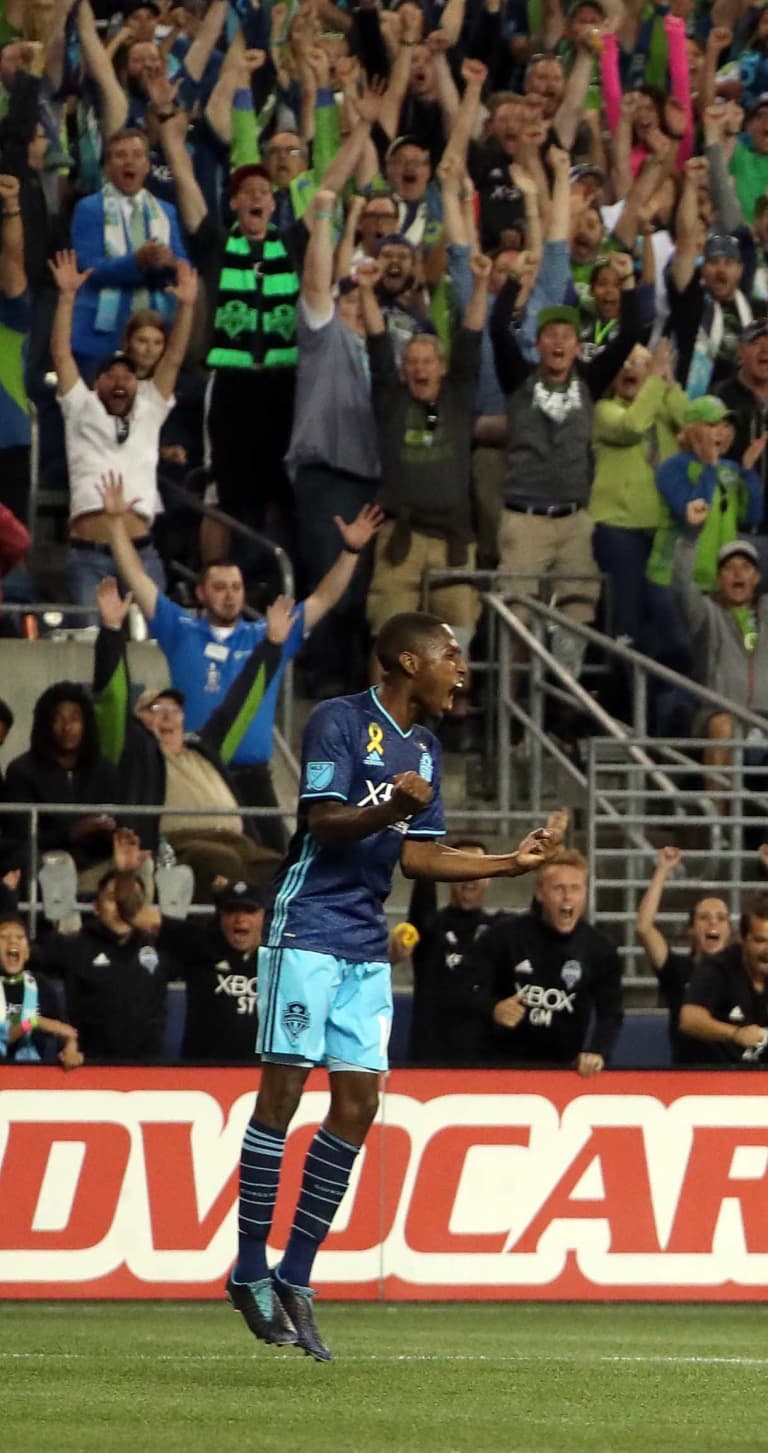
“It’s not easy to come to another country … but my first game against Portland was a special game, a big game,” Leerdam says. “I felt the support of the fans, it’s a special game for the league because it can only bring the level up. Especially because now you see Seattle is No. 1, and Portland is No. 2… it’s these kind of games that make the league grow.”
For the tenured players on Seattle’s roster who have familiarity with the Cascadia matches, Leerdam indicated that the stakes of both contests were clear, setting the tone for his first taste of North America’s oldest soccer rivalries.
“You see how the players act,” he says. “I see the actions of my teammates in the locker room and in training, players who want extra tickets [for their families and friends], things like that. There is a special feeling for the guys. [In the Portland match] I got an elbow [to the face] and I felt the reaction and the support of our fans. Those kind of little things let you know how big the game is … you feel the support in the stadium, you hear the noise when one little thing happens on the pitch, people will try to influence the game by screaming to influence the referee. In Holland, you feel pressure and support as well, with fans coming to training the last day before the [rivalry] match, shooting off fireworks, things like that. These are the games you want to play in, they are special.”
Since Leerdam’s arrival in the Emerald City, he has helped bolster a Sounders FC defense that established a franchise record of 421 consecutive scoreless minutes in July and August, in addition to breaking the club record for consecutive matches unbeaten. Since signing for Seattle on July 1, the Dutch defender has made an immediate impact, recording a goal and an assist in his first MLS start. But stats barely tell the story, as Leerdam’s experience has been immediately felt at a position General Manager & President of Soccer Garth Lagerwey publicly stated was an area of emphasis for his club during the summer transfer window.
Lagerwey reinforces this notion: “Kelvin has been a great addition to our team and has simply brought a different level to the fullback position in our system. Adding Kelvin is another big step for our club. To get a player with European experience in his prime who spurned offers to play [UEFA] Champions League to come to Seattle is a sign of our progress. Importantly, Kelvin has also had a positive cultural impact on our team as a player and as a person. We are really happy he has come to join us here in Seattle.”
Already a difference-maker for the Rave Green, Leerdam recalls the phone call that changed his life and started the process of bringing him Stateside.
“Dave [Tenney] was the first guy I spoke with,” Leerdam recalls. “He asked me if I was interested in coming [to Seattle] … I followed U.S. sports a lot, it’s a country I always wanted to be in. So we kept the option open [of coming to Seattle], and it took a few weeks, and after that I spoke to coach [Brian Schmetzer], Chris [Henderson] and Garth [Lagerwey] and they gave me a very good feeling. I spoke a lot with Garth toward the end of the negotiations, and I think the best thing you can get as a person is if they give you a good feeling. Garth did a good job to make me feel comfortable when I was speaking with him, and in the end I have no regrets about the decision. I feel good, I feel happy … I’m looking forward and I hope I can stay a long time in Seattle.”
Director of Performance and Sports Science for Sounders FC, Dave Tenney knew of Leerdam from his Dutch connections and recalls the traits that made the fullback an intriguing fit for Brian Schmetzer’s side.
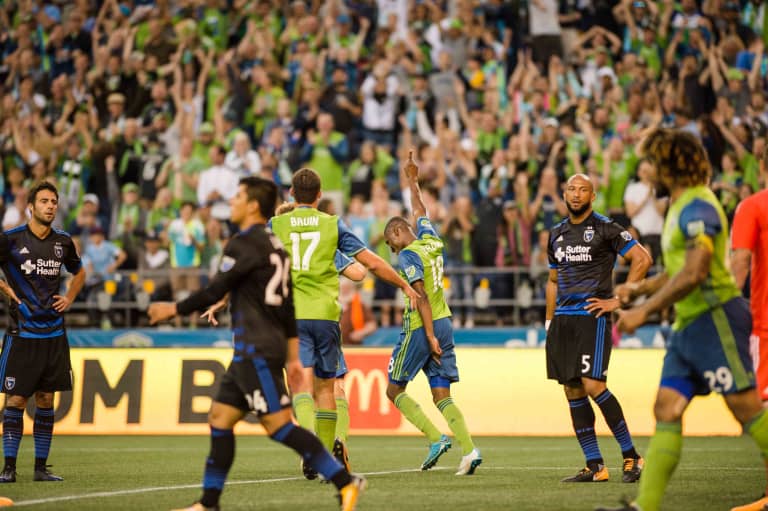
“He obviously had a very good pedigree at Feyenoord and Vitesse, and I knew a couple of the coaches he’d worked with, and he’d trained and played at the very highest level,” says Tenney. “He was someone we knew would be comfortable in possession, was very athletic, and having watched him in the Dutch league had the profile to play right back in this league.”
That call from Tenney and subsequent discussions with Seattle’s brass enabled Leerdam to complete his move to the United States, a country with a sporting culture he had been keeping an eye on from afar. Watching American sports programming in the Netherlands like ESPN’s Pardon the Interruption and First Take had piqued his interest in U.S. sports, with Leerdam already holding an affinity for collegiate and professional basketball.
“It started while I was still at Feyenoord,” he says. “My father loves almost every sport, and at that time ESPN was shown on TV in the Netherlands, and I started watching it almost every day. I was watching a lot of NCAA basketball. I always like to see a lot of the young players you don’t see in the NBA yet… and I would see those shows [Pardon the Interruption and First Take] for background information about things that happen in the NBA and NFL and things like that. You see the discussions, it’s very lively and funny to watch. I love the discussions and luckily I can understand enough English to enjoy them.”
Leerdam continues, “That’s the great thing about American sports. It’s not just the guy you see on the TV, but it’s also the story behind him and the story he’s been through. That’s what connected me to American sports, it’s a lot of things that happened in his life before that make his journey so interesting. You want people like that to succeed because it’s not easy. I know where I came from, maybe that’s why I’m drawn to [those types of stories].”
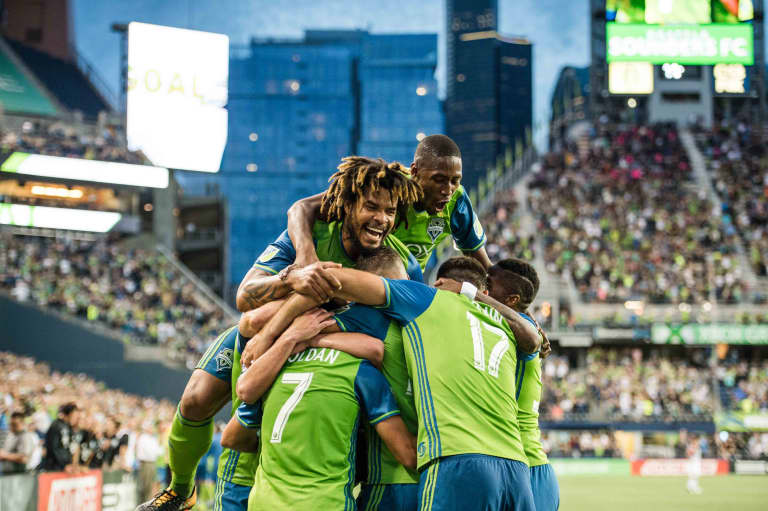
Leerdam’s own story has included a variety of twists and turns. From growing up in Suriname, a former Dutch enclave on the northeastern tip of South America, to catching the discerning eye of professional scouts after moving to Holland as a youth, soccer has remained a constant for the 27-year-old. Leerdam’s father Marlon Grando played the sport in his native Suriname and was a mainstay for his country’s national team, while his family tree boasts some of the finest contemporary talents in the global game. This familial network includes cousins Georginio and Giliano Wijnaldum, with the latter playing at fellow MLS side Philadelphia Union and the former a previous teammate at Feyenoord and now an established attacking star at English power Liverpool. Leerdam considers the elder Wijnaldum to be the finest current Dutch export in a long line of talented players representing the Netherlands, “Not because he’s somebody I played with a long time and is family, I just watch his performances at Liverpool and he’s the best Dutch player now.”
For Leerdam, his passion for the game is firmly rooted to his family, down to the No. 18 he currently wears for Sounders FC.
“My mother played, my father played — everybody in Suriname played. Everyone there speaks highly of my father as a player, and I never got to see him play, but I took his number [in Seattle] because he always talked about the importance of his number. My father played in CONCACAF tournaments, he played in the Azteca Stadium [in Mexico City] and showed me pictures and he [played] in Olympic Qualifiers with Suriname and played a lot of games. I’m close with my father, and I’m close with my mother. I have a good bond with both of my parents.”
For now, Leerdam is seamlessly adjusting to his new club and country, serving as an ambassador for his familial legacy and the soccer traditions of two nations. His Suriname roots serve as a source of pride, as does the Dutch football background he brings to Seattle’s mosaic of football cultures and experiences. Tactical versatility has always gone hand-in-hand in with the Dutch style, allowing a relatively small nation of 17 million people to become a longstanding global power in the world’s most popular sport.
For the affable Leerdam, it’s all about providing his new club with options: “I’m focused on defense first. Of course I hope to bring something extra [in the attack]. I’ve always played midfield, but in the last four or five years I’ve been primarily playing defense: left back, center back, right back. Everything except the goalkeeper!”

